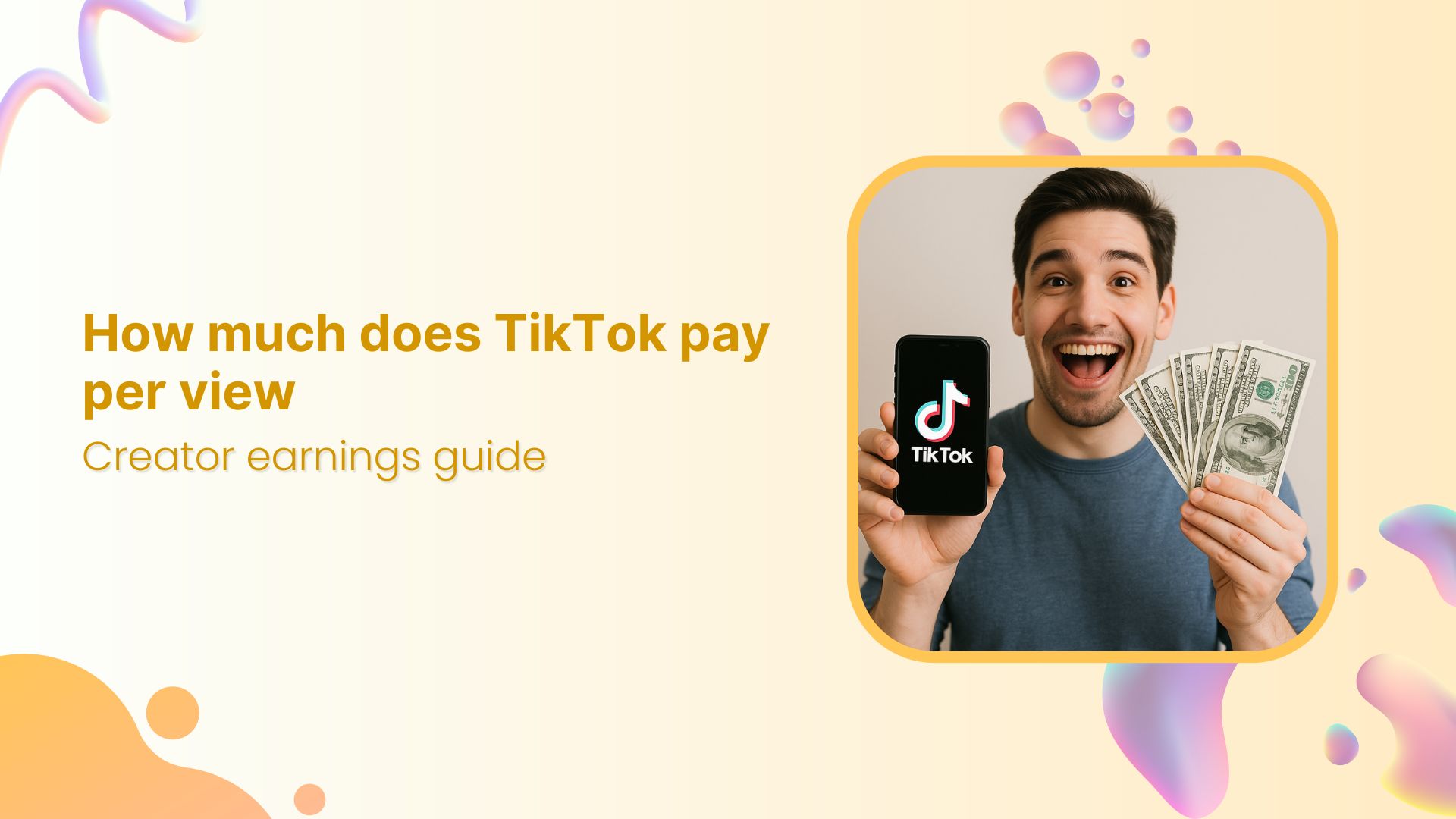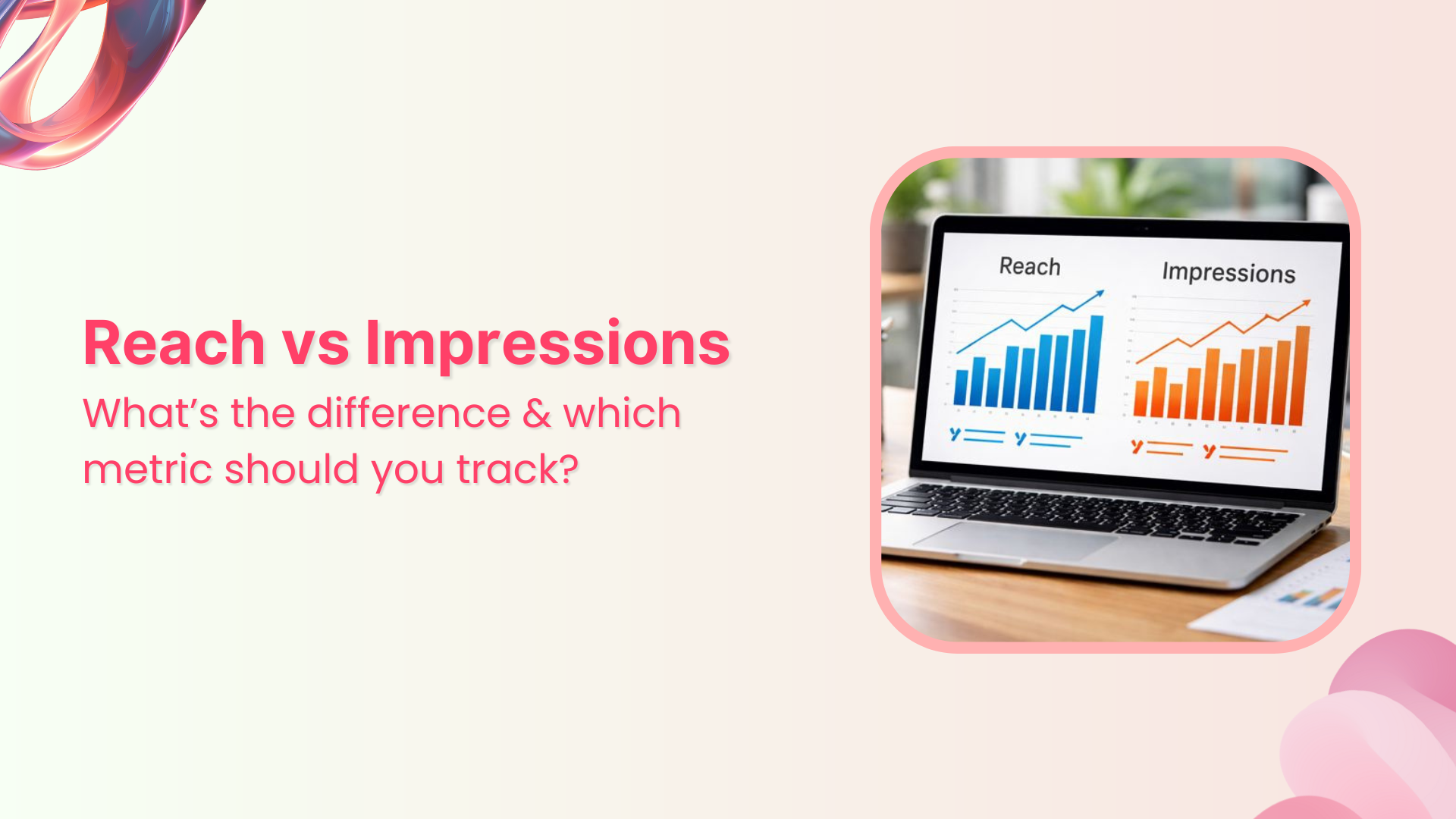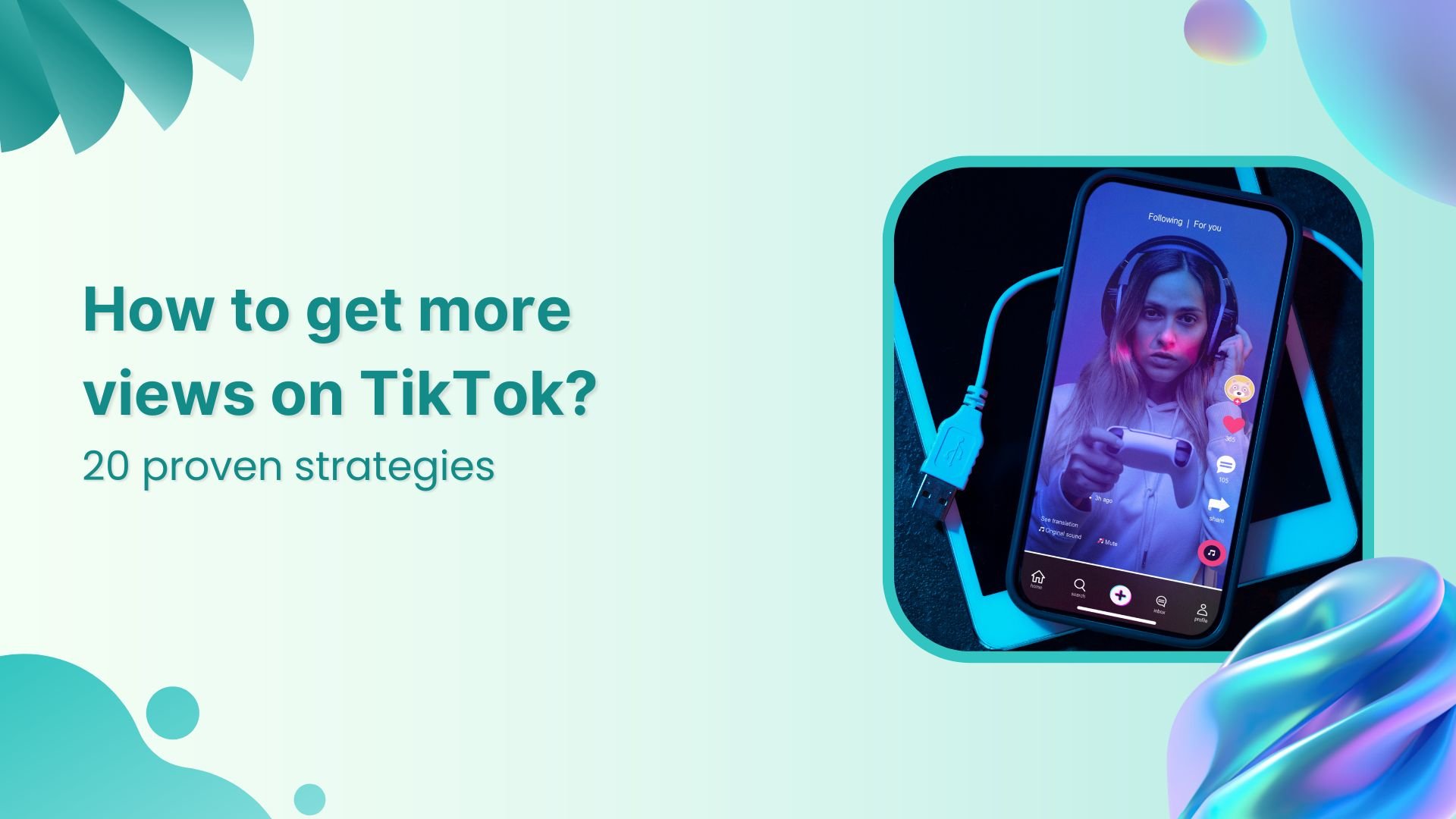Bulk-generate & schedule posts in seconds with Smart Scheduling. Try now!
Social media questionnaire for onboarding new clients [30+ questions]
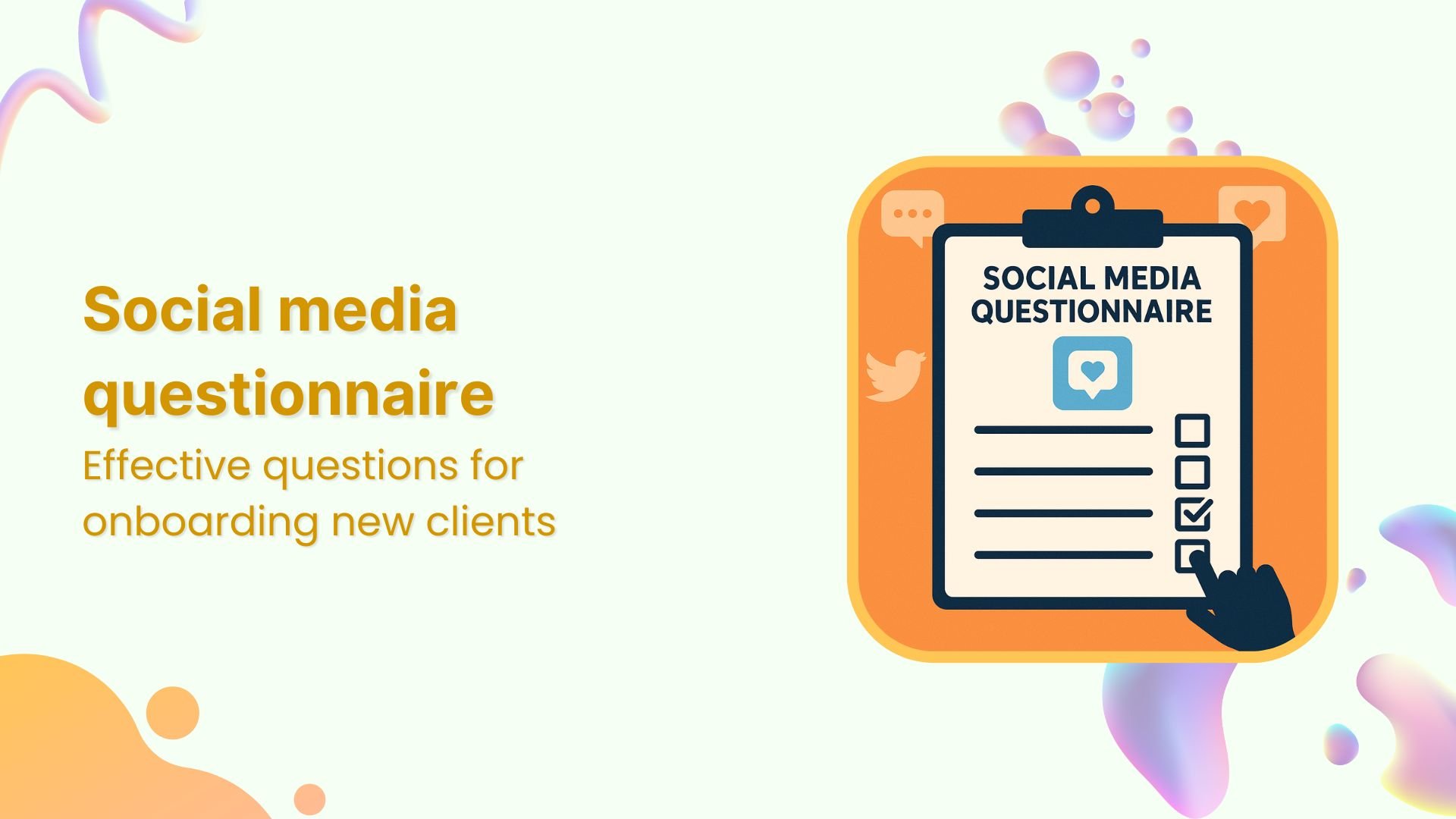
A successful customer onboarding process can greatly impact the retention and satisfaction of your clients. For social media managers, understanding the needs and expectations of new clients is crucial for crafting tailored strategies that resonate with their target audience.
A well-structured social media questionnaire is a vital tool in this process. It not only streamlines the onboarding but also ensures that both parties are aligned from the start. This section will delve into over 30 insightful questions you should include in your social media questionnaire to effectively onboard new clients, setting the stage for a productive working relationship.
The easiest way to manage and grow your social channels.
Try ContentStudio for FREE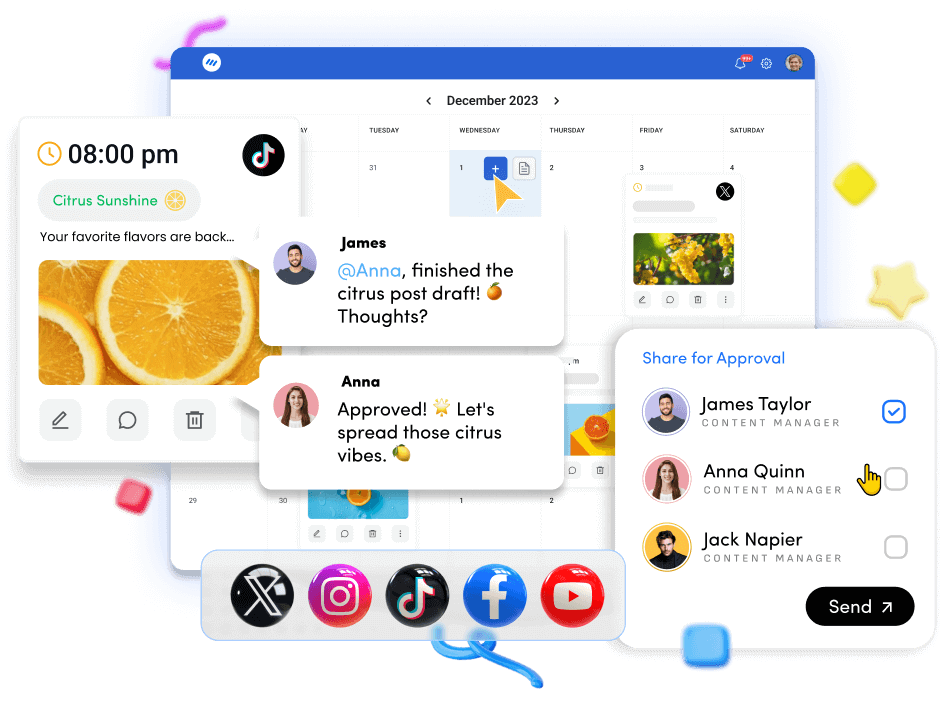
How important is a social media questionnaire for new clients?
1. Understand client’s business and brand
Before launching any social media campaign, it is essential to grasp the full spectrum of the client’s business. A social media questionnaire can uncover critical details about the client’s company, including the origins of the business, its mission, values, key products or services, and the social media target audience. This depth of understanding enables social media agencies to craft campaigns that resonate with the client’s brand identity and business goals. Moreover, it ensures that the social media strategy aligns seamlessly with the company’s overall marketing objectives, creating a unified approach to the client’s communication efforts.
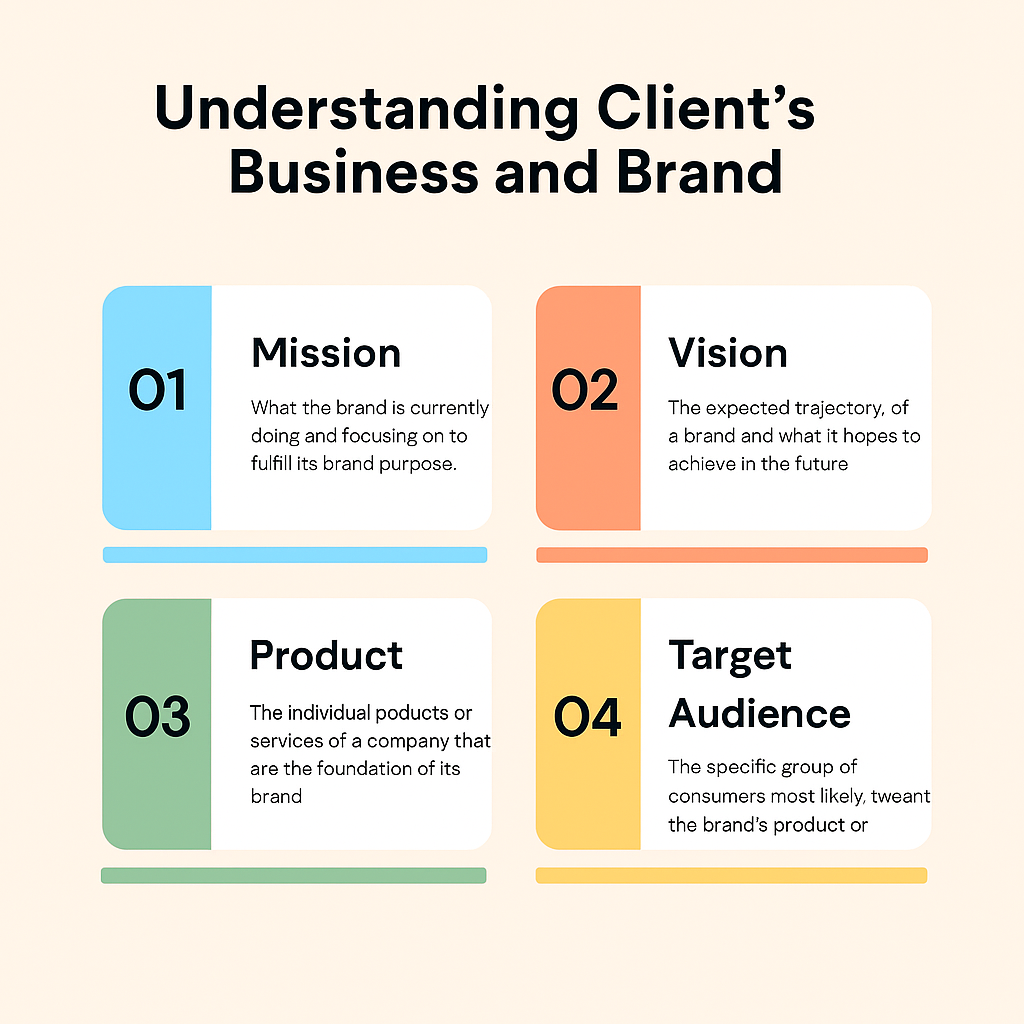
2. Structured information gathering
Without a structured approach, vital information can easily be overlooked. A social media questionnaire standardizes the data collection process, ensuring that all relevant information is gathered efficiently and consistently. This systematic collection prevents gaps in understanding that could lead to ineffective campaign strategies. By having a set questionnaire, agencies can also ensure they are asking the right questions that will inform their strategy, reflecting a thorough and professional approach to their new client engagements. This method not only saves time but also prevents the need for multiple follow-ups, which can be time-consuming and potentially frustrating for both parties.
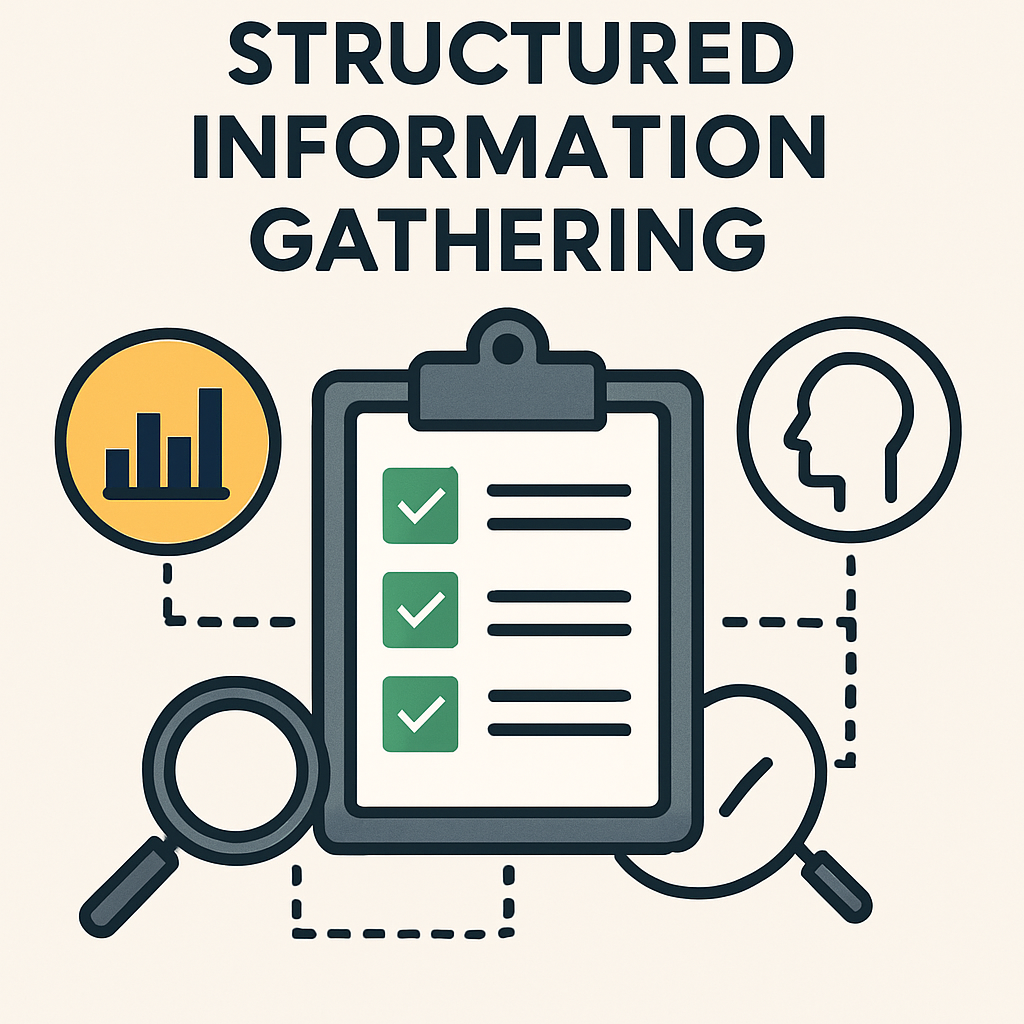
3. Enhancement of client relationships
First impressions are lasting, and the onboarding process is a critical time to establish a strong foundation for a new client relationship. By implementing a detailed social media questionnaire, agencies can demonstrate their commitment to thoroughly understanding and meeting the client’s needs. This gesture helps build trust and reassures the client that they have made the right choice in selecting your agency. Furthermore, it sets a professional and organized tone for the relationship, showcasing the agency’s commitment to excellence and attention to detail.

4. Facilitates effective collaboration and communication
A social media questionnaire lays the groundwork for clear and open communication between the agency and the client. By systematically capturing the client’s vision, expectations, and specific requirements, both parties gain a clear understanding of the project scope and objectives from the outset. This clarity helps prevent misunderstandings and misalignment that could derail the project. Moreover, it fosters a collaborative environment where both the client and the agency can work together towards a common goal, with all parties clearly understanding the strategy and expected outcomes.
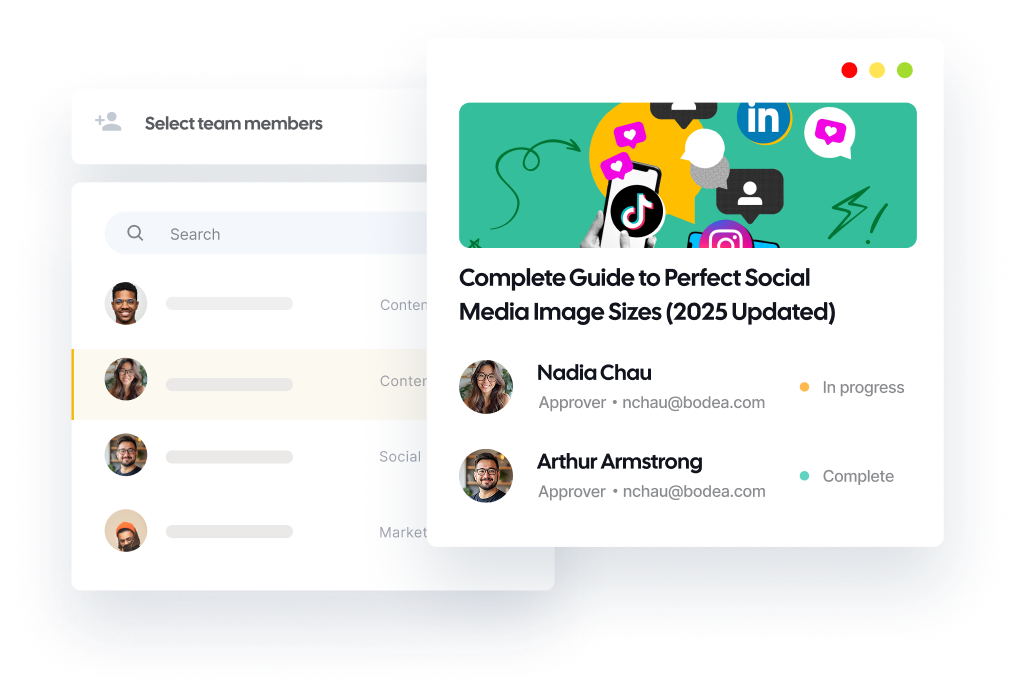
5. Benchmarking and measurement of success
One of the fundamental benefits of a social media questionnaire is its role in setting benchmarks for the campaign. By establishing clear goals and expectations during the onboarding process, agencies can more effectively measure the success of their social media efforts against these initial benchmarks.
This evaluation is crucial for demonstrating ROI to clients and for making informed adjustments to the strategy as needed. Continuous measurement and adjustment, guided by the foundational insights gained from the questionnaire, ensure that the social media campaigns remain effective and aligned with the client’s evolving business objectives.
Social Media Analytics
Fine-tune your social media strategy for success with in-depth analytics and white-labeled reports.
Get Started for FREE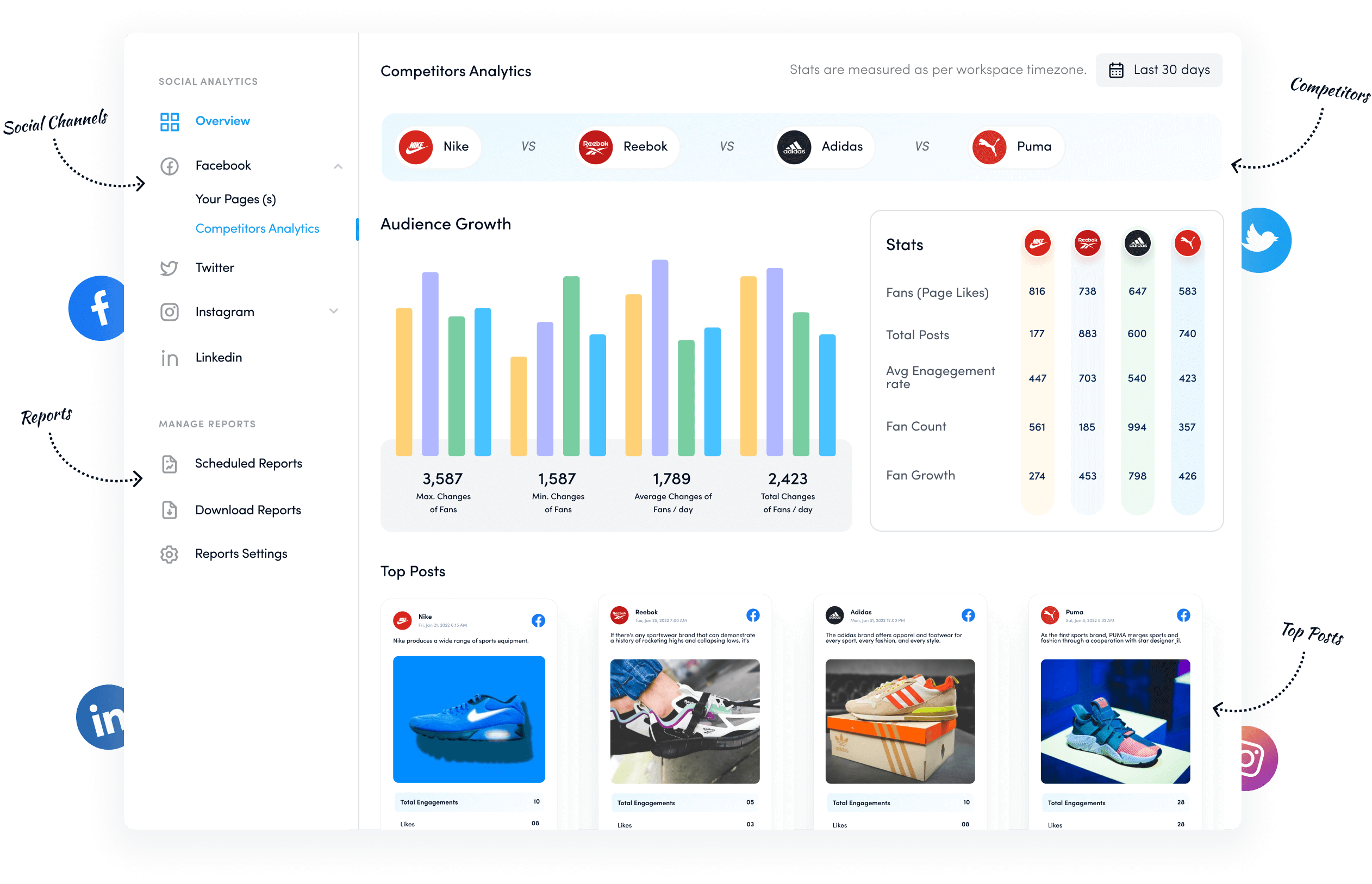
Choosing the right social media questionnaire questions: What do you look for?
When onboarding new social media clients, the initial information gathering phase is crucial. A well-designed social media questionnaire streamlines the process and ensures strategies are tailored to meet specific client needs. The key to a successful questionnaire lies in careful question selection.
Here are vital considerations when choosing questions for your social media questionnaire:
1. Relevance to client’s business goals
Questions should directly relate to the client’s business objectives. Each question should gather insights that inform the social media strategy and support overall business goals. For example:
- “What are your top three business objectives for the next year?”
- “How do you see social media contributing to these goals?”
2. Comprehensiveness
Strike a balance between thoroughness and simplicity. Cover essential areas including brand voice, target demographics, platform preferences, content strategy, and engagement metrics. Key questions include:
- “Describe your ideal customer”
- “Which platforms does your social media target audience use most?”
- “What content has received the most engagement?”
3. Clarity and precision
Use clear, unambiguous language to ensure accurate responses. Instead of asking broadly about ‘social media goals’, ask specifically about ‘key performance indicators they hope to improve through social media’.
4. Future-oriented and scalable
Address both current state and future aspirations. Questions like “What new markets are you planning to target?” help create adaptable strategies that evolve with the client’s business.
5. Client’s capacity and resources
Assess in-house capabilities through questions about available tools, team expertise, and content creation capacity. This helps craft realistic, executable strategies. Consider asking about their current social media management tools and team size.
Understanding these factors helps agencies provide appropriate support and guidance throughout the social media management process.
30+ Social media questionnaire questions for onboarding new clients
When onboarding new clients, a comprehensive social media questionnaire is essential for gathering the necessary insights to develop an effective and personalized strategy. Below, we categorize and describe 38 crucial questions that can help you understand your client’s needs, expectations, and the scope of the project you are undertaking. You can also use social media marketing agency for your business.
Branding and company information
This section aims to grasp the essence of the client’s brand identity and how they wish to be perceived in the market.
1. What is the core mission of your company?
2. How would you like your brand to be perceived by your target audience?
3. What sets your brand apart from your competitors?
4. Can you describe your brand’s voice and visual style?
5. What are the key messages your brand aims to communicate?
Target audience and demographics
Understanding who the client is targeting is crucial for crafting messages that resonate and engage effectively. You can also use demographics to target your audience.
6. Who is your primary target audience (age, gender, location, interests)?
7. How does your target audience typically engage with brands online?
8. What social media platforms does your target audience use most?
9. What are the key pain points or needs of your target audience?
10. How does your product/service meet the needs of your target audience?
Social media objectives and goals
This category helps clarify what the client hopes to achieve through their social media efforts, guiding the strategy development.
11. What are your primary goals for using social media?
12. How do you measure success on social media?
13. What are your short-term and long-term objectives?
14. Are there any specific campaigns or promotions you want to focus on?
15. How does social media fit into your overall marketing strategy?
Social media platform preferences
Identifying the right platforms is key to effectively reaching out to the target audience and achieving set goals. You can also use social media marketing platforms.
16. Which social media platforms are you currently active on?
17. What has been your most successful platform and why?
18. Are there new platforms you are interested in exploring?
19. What type of content performs best on your current platforms?
20. How often do you post on each of these platforms?
Content strategy and brand voice
These questions aim to align the content strategy with the client’s brand voice and audience preferences.
21. What type of content do you wish to share on your social media channels?
22. Do you have an established content calendar or posting schedule?
23. What is the tone and voice of your current content?
24. Do you use any recurring themes or hashtags in your content?
25. How do you integrate user-generated content in your strategy?
Existing social media presence
Gauging the current state of the client’s social media to identify strengths and areas for improvement.
26. Can you provide insights into your current follower demographics?
27. What challenges are you facing with your current social media strategy?
28. Which past social media campaigns have you found most effective?
29. Have you conducted any competitor analysis on social media?
30. What feedback have you received from your audience about your social media presence?
Competition analysis
Understanding the competitive landscape helps in differentiating the client’s social media presence.
31. Who are your main competitors on social media?
32. What are some strengths and weaknesses of these competitors?
33. How does your social media strategy differ from your competitors’?
33. Are there successful social media tactics employed by competitors that you admire?
34. What unique value can we provide on social media that competitors are not offering?
Budget and resources
These questions ensure that the social media strategy aligns with the client’s available resources and budget.
35. What is your budget for social media marketing?
36. Do you have a dedicated social media team?
37. What resources are available for creating social media content?
38. How do you handle social media advertising?
39. Are there specific tools or software you use for social media management?
By addressing these areas through a structured questionnaire, agencies can effectively plan and execute social media strategies that meet and exceed client expectations.
Experience organized workflow with a unified social media management platform for agencies.
Try ContentStudio for FREE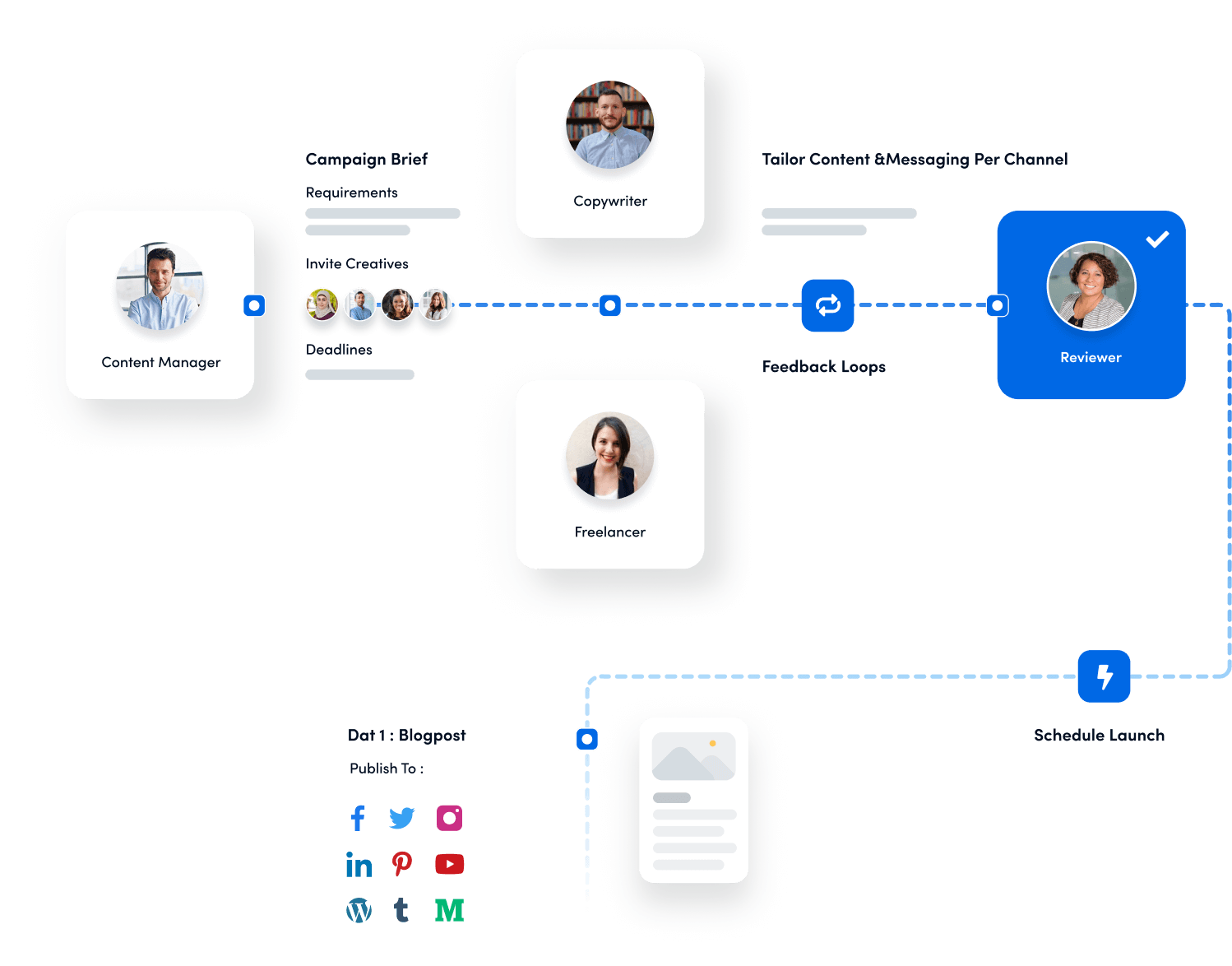
Wrapping up
Hence, a social media questionnaire is crucial for understanding a new client’s brand, audience, goals, and preferences, ensuring the creation of an effective and personalized social media strategy. It enables agencies to gather comprehensive insights that inform tailored strategies aligned with each client’s unique business objectives.
Utilizing a well-structured questionnaire enhances client onboarding efficiency while laying the foundation for successful partnerships. By deeply understanding client needs from the outset, social media managers are better equipped to deliver strategies that resonate, engage, and convert.
This approach creates lasting, fruitful client relationships by:
- Meeting and exceeding client expectations
- Positioning the agency as a pivotal element in their social media marketing success
- Establishing clear communication channels for ongoing social media collaboration
With proper questionnaire insights, agencies can leverage social media management tools more effectively and create content strategies that drive meaningful results for their clients.
Frequently asked questions
What is the ideal length for a social media questionnaire?
The ideal length for a social media questionnaire should be concise—about 15 to 30 questions. This ensures it is comprehensive enough to gather necessary insights without overwhelming the client, maintaining engagement throughout the onboarding process.
What is the purpose of conducting a social media survey during client onboarding?
Conducting a social media survey during client onboarding helps gather critical information about the client’s business objectives, target audience, and expectations. This enables the creation of a tailored and effective social media strategy that aligns with the client’s goals.
Recommended for you


Powerful social media management software
14-day free trial - No credit card required.
